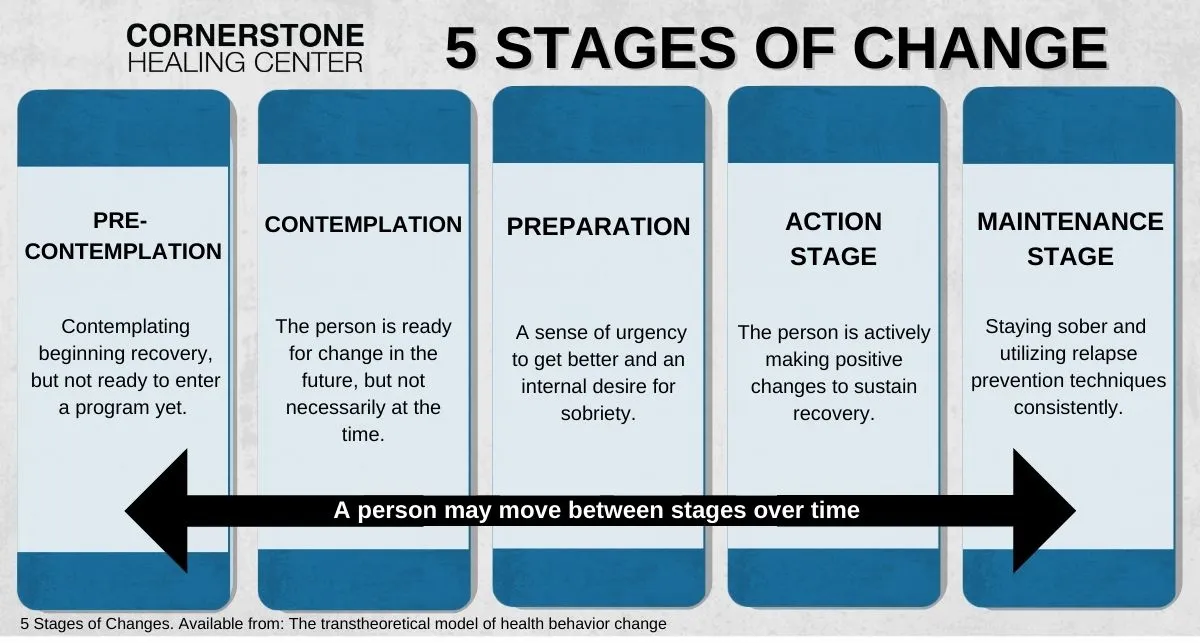Understanding Addiction: Supporting Your Sister Through Her Struggle
What is Addiction?
Addiction is characterized by compulsive behaviors that interfere with a person’s ability to live a healthy and fulfilling life. It is more than just a physical or psychological dependence on a substance; it is an all-encompassing condition that impacts individuals on multiple levels.
Causes and Effects of Addiction
At its core, addiction is caused by an individual’s inability to control their substance use. This lack of control can stem from various factors, including:
- Genetic predisposition
- Environmental influences
- Emotional trauma
- Mental health issues
Addiction also causes changes in the brain, such as alterations in dopamine levels and neural pathways. These changes make it increasingly difficult for individuals to resist the urges to engage in addictive behaviors.
The Complexity of Addiction
Addiction is a multifaceted issue that affects every aspect of an individual’s life. It can lead to:
- Strained relationships with family and friends
- Difficulties at work or school
- Financial problems
- Legal troubles
- Health issues, both physical and mental
Recognizing the complexity of addiction is essential for providing effective support and treatment to those struggling with this condition.
Statistics on Addiction
Many families and friends may not fully grasp the extent of the addiction problem in the United States. The National Survey on Drug Use and Health for 2021, released in January 2023, paints an alarming picture of the current situation.1
Prevalence of Substance Use and Addiction
- Approximately 61 million people in the United States reported using illicit drugs in the past year.
- 9.2 million people aged 12 and older misused opioids in 2021.
- 46.3 million people aged 12 or older (16.5% of the population) met the DSM-5 criteria for having a substance use disorder in the past year.
- 29.5 million people were classified as having an alcohol use disorder.
- 24 million people were classified as having a substance use disorder.
Lack of Treatment for Substance Use Disorders
- In 2021, 94% of individuals aged 12 or older with a substance use disorder received no treatment.
- Nearly all people with a substance use disorder who did not receive treatment at a specialty facility did not believe they needed treatment.
These statistics demonstrate that addiction is a growing problem in the United States. It’s important to remember that your sister is not alone in her struggle, and many families across the country are facing similar challenges. Despite the stigma that may still surround addiction, it is a widespread issue that affects people from all walks of life.
Lack of Treatment for Substance Use Disorders
- In 2021, 94% of individuals aged 12 or older with a substance use disorder received no treatment.
- Nearly all people with a substance use disorder who did not receive treatment at a specialty facility did not believe they needed treatment.
These statistics demonstrate that addiction is a growing problem in the United States. It’s important to remember that your sister is not alone in her struggle, and many families across the country are facing similar challenges. Despite the stigma that may still surround addiction, it is a widespread issue that affects people from all walks of life.
My Sister is Using Drugs? Why?
Potential Factors Contributing to Addiction
- Genetic Predisposition: Some people may be more prone to addiction due to their genetic makeup.
- Coping Mechanism: Others may start using drugs or alcohol as a way to cope with stress, trauma, or emotional pain.
- Environmental Influences: Peer pressure, availability of substances in the home, and other environmental factors can contribute to addiction.
- Mental Health Issues: Underlying mental health problems, such as depression or anxiety, can play a role in the development of addiction.
Having an open and honest conversation with her is important to understand your sister’s situation better. By listening to her story and understanding her underlying motivations, you can gain valuable insight into why she became addicted and how you can best support her in her recovery journey.
Remember, addiction is a complex issue, and everyone’s experience is different. Approaching your sister with empathy, compassion, and a non-judgmental attitude can help foster a supportive environment for her recovery.
Liz, who has an sister struggling with addiction speaks about the impact it has had on her life.
How Do I Tell if My Sister is Using Drugs?
Identifying when someone is struggling with addiction can be challenging, as the signs and symptoms may not always be obvious. It’s natural to want to explain away certain behaviors or changes, but it’s important to be aware of the warning signs that may indicate a drug problem.
Physical Signs:
- Sleeping more or less than usual
- Changes in appetite or weight
- Dilated pupils
- Slurred speech or difficulty concentrating
- Confusion, memory problems, and impaired decision-making abilities
- Clumsiness or lack of coordination
Behavioral Changes:
- Stealing or borrowing money without permission
- Withdrawal from activities or hobbies they used to enjoy
- Changes in friends, particularly those with similar interests in drugs and alcohol
- Erratic mood swings and changes in attitude
- Lying about or hiding their drug usage
- Risk-taking behaviors
Psychological Signs:
- Changes in self-esteem, such as feeling inadequate or worthless
- Lack of interest in activities they used to enjoy
- Feeling isolated, depressed, or anxious
- Increased irritability or anger outbursts
- Paranoia or extreme mistrust of others
Emotional Signs:
- Feeling guilt or shame about their actions
- Difficulty expressing emotions and being unable to control them
- Denial of the extent of their addiction
- Difficulty handling stress and new challenges
- Uncontrollable cravings for the substance
- Difficulty focusing or concentrating on tasks
It’s important to note that these lists are not exhaustive, and the presence of one or more of these signs does not necessarily mean that your sister is using drugs. However, notice a pattern of concerning changes in her behavior, physical appearance, or emotional state. It may be time to talk with her about your concerns and offer your support in seeking help.
Quick Tip
Approach Your Sister with Compassion, Not Judgment
Remember that addiction is a disease, not a choice. Approach your sister with compassion and understanding, and avoid using language that stigmatizes or shames her for her drug use. By creating a supportive and non-judgmental environment, you can help your sister feel more comfortable opening up about her struggles and seeking the help she needs to overcome her addiction.
Starting the Process to Get Your Sister Help
Gauge Where Your Sister is
If you believe your sister has a drug problem, the first step is to try and gauge where she is in her journey. It’s important to remember that everyone’s recovery process will look different, and there is no one-size-fits-all approach. However, understanding the stages of change can help you assess how best to support her.
The Stages of Change
The Transtheoretical Model of Change, developed by Prochaska and DiClemente in the 1980s, identifies five stages a person goes through when attempting to make a behavioral change:
- Pre-contemplation
- Contemplation
- Preparation
- Action
- Maintenance
Once you have assessed where your sister is in her journey, it’s important to tailor your approach accordingly. For example, if she is in the pre-contemplation stage, the goal may be to increase her awareness and understanding of her addiction. Gently expressing your concern and providing resources she can access if she chooses may be a good starting point.
If your sister is in the action stage, it’s important to provide ongoing support and resources such as 12-step programs, therapy, and other forms of treatment.

Talking to Other Family Members
When you’re concerned about your sister’s drug use and want to get her help, talking to other family members can be beneficial. It’s important to remember that everyone in the family may have different views on how best to approach the situation, and respecting those differing opinions is crucial.
Maintaining an open dialogue is key to ensuring the family can support each other and find a solution that works for everyone. Discussing issues calmly and nonjudgmentally will also make it more likely that your sister will be receptive to getting help.
Remember that addiction can have an emotional impact on the entire family, and it’s important to seek emotional support for yourself and other family members during this time.
Conducting Research on Addiction Treatment Options
Researching different types of addiction treatment is essential to making an informed decision. Various treatment options are available, and it’s important to familiarize yourself with them to choose the best option for your sister’s needs.
It’s important to consider any underlying mental health issues that may be contributing to the addiction. If this is the case, it’s important to seek out treatment options that address both the addiction and any underlying mental health concerns.
Be sure to research any potential doctors or therapists you are considering engaging with and their qualifications and experience in treating addiction.
Consult an Addiction Professional or Treatment Center
Once you have researched, it’s important to consult a professional or treatment center specializing in addiction. A professional can provide more detailed information about the various treatment options and work with you to develop an individualized plan for your sister’s recovery.
At this stage, it’s also important to consider if inpatient treatment is the right option for your sister. Inpatient treatment provides round-the-clock care and supervision in a residential environment, which can be beneficial for those struggling with severe addiction.
What are some signs that my sister might be struggling with drug addiction?
Some common signs of drug addiction include changes in behavior, such as withdrawing from family and friends, losing interest in activities she once enjoyed, and exhibiting secretive or suspicious behavior. Physical signs may include changes in appearance, sleep patterns, and appetite. If you notice a combination of these signs, it may indicate that your sister is struggling with drug addiction.
How can I approach my sister about her drug use without pushing her away?
When approaching your sister about her drug use, it’s important to do so in a non-judgmental and compassionate manner. Express your concern for her well-being and tell her you support her. Avoid using accusatory language or ultimatums, as this may cause her to become defensive or withdrawn. Instead, focus on creating a safe and open environment where she feels comfortable discussing her struggles and seeking help.
What should I do if my sister refuses to acknowledge her drug problem or seek treatment?
If your sister is resistant to acknowledging her drug problem or seeking treatment, it’s important to remember that you cannot force her to change. However, you can continue to support and encourage her to seek help when she is ready. Consider staging an intervention with the help of a professional interventionist or addiction specialist, who can guide the process and help your sister understand the impact of her addiction on herself and those around her. Remember to set clear boundaries and prioritize your well-being while supporting your sister on her journey to recovery.
Staging an Intervention for Your Sister
Once you have consulted a professional and developed an individualized treatment plan for your sister, it’s important to stage an intervention. An intervention typically involves family members and close friends gathering in a safe, supportive environment to express their concerns to the person struggling with addiction.
The goal of an intervention is twofold: first, to encourage the person to accept help and enter treatment, and second, to provide them with resources and support. It’s important that the intervention is conducted non-confrontationally and that everyone involved understands their role in providing support during this difficult time.
It can be beneficial to include an addiction specialist during the intervention in addition to family members. The specialist can provide more detailed information about treatment options and answer any questions or concerns that may come up during the conversation.
By staging an intervention, you are taking an essential step toward helping your sister find the help she needs to break free from her addiction. With ongoing support and care, your sister can overcome her addiction and start the path to recovery.
Get Help for Substance Abuse at Cornerstone
We offer a wide range of treatment for mental health and substance abuse conditions. Begin your journey to recovery today!
Setting Clear Boundaries
Offering Support for Your Sister Without Enabling
Why You Should Get Help for Your Sister Now
Getting help for an addicted sister can be difficult. Remembering that there’s no way to control the situation is important. If your sister is not ready to get help, she isn’t ready. The good thing is that you can let her know you’ll be there for her when she’s ready.
Benefits of Early Intervention
Early intervention is key when it comes to treating addiction. For your sister, the sooner she begins treatment and recovery, the easier it will be for her to beat her addiction long-term. Early intervention can also help reduce the risk of relapse as well as prevent further damage to physical and mental health.
The Unbreakable Bond in the Face of Addiction
Dealing with a sister’s drug addiction can be an emotionally challenging and overwhelming experience. It’s natural to feel a range of emotions, from worry and fear to frustration and helplessness. However, it’s important to remember that you are not alone in this journey, and there is hope for your sister’s recovery. By educating yourself about addiction, recognizing the signs, and seeking professional help, you are taking important steps toward supporting your sister and helping her break free from the grip of addiction.
As you navigate this difficult time, remember to take care of yourself. Seek support from trusted friends, family members, or a therapist who can help you process your emotions and develop coping strategies. Remember that you cannot pour from an empty cup, and taking care of your mental and emotional well-being is essential to being there for your sister in the long run.
Your sister’s addiction does not define her, and it does not define your relationship. By approaching her with compassion, understanding, and a willingness to help, you show her that she is loved and valued, no matter what. Together, you can embark on a journey of healing, growth, and recovery, one step at a time. At Cornerstone Healing Center, we understand the challenges you and your sister face, and we are here to provide the support, guidance, and resources you need to overcome addiction and build a brighter future together.
The bond between sisters is a powerful force that can withstand even the darkest storms. By standing together, supporting each other, and believing in the strength of your love, you can overcome the challenges of addiction and emerge stronger, closer, and more resilient than ever before. Remember, you are not just sisters—you are a team, a force to be reckoned with, and together, you can face anything that comes your way.
Key Takeaways
- Key Takeaways
- Understanding Addiction: Addiction is a complex condition that affects people on many levels, and it is caused by a mix of genetic, environmental, and psychological factors.
- Recognizing the Signs: Be aware of the physical, behavioral, psychological, and emotional changes that may indicate your sister is struggling with drug addiction.
- Researching and Seeking Professional Help: Educate yourself about the treatment options for addiction, and consult with a professional or treatment center to develop an individualized plan for your sister's recovery.
- Supporting Without Enabling: While it is crucial to offer love and support to your sister during this challenging time, it is equally important to set clear boundaries and avoid enabling behaviors that may perpetuate her addiction.







